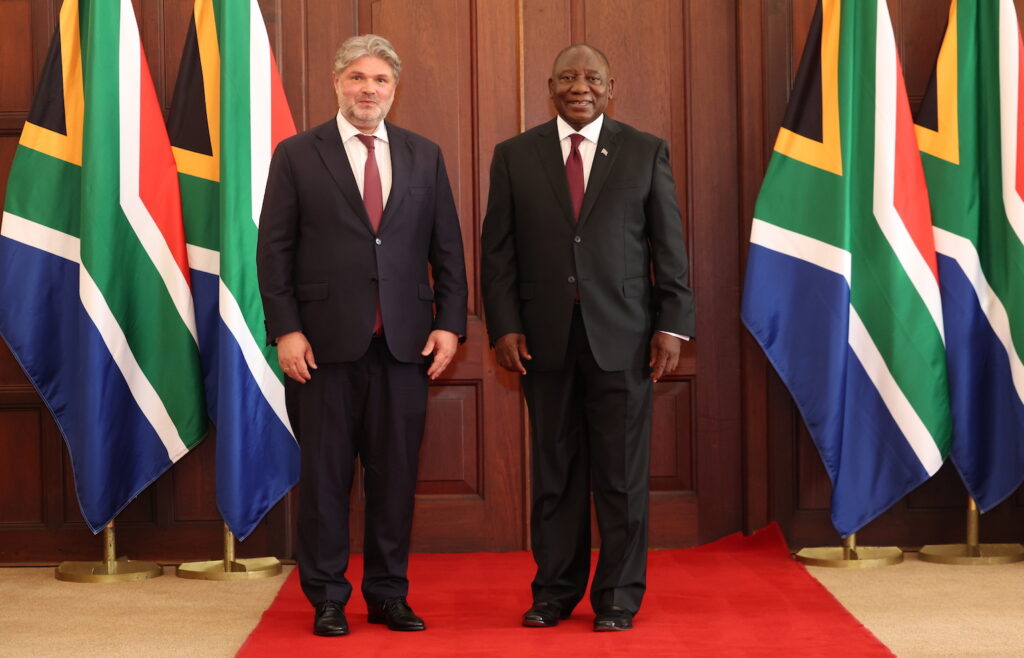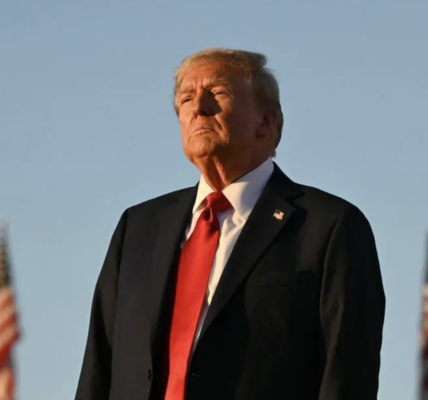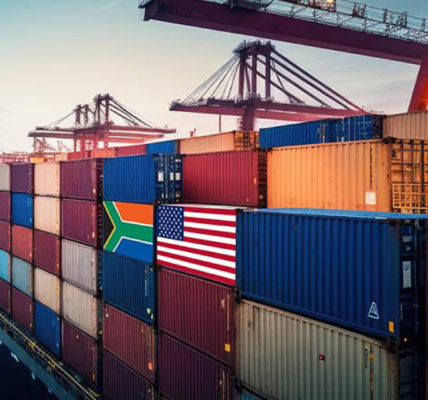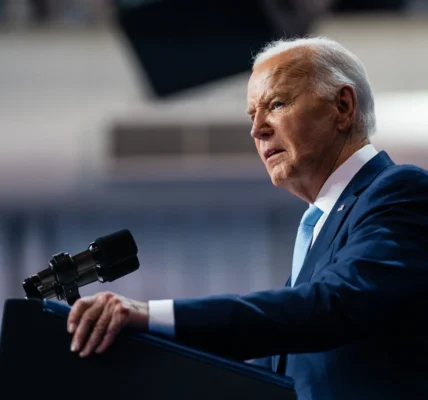Things could get a lot worse for South Africa than targeted sanctions and tariffs, says leading think tank

South Africa has been targeted by the United States through a series of punitive measures, including the introduction of legislation calling for targeted sanctions and a review of its relationship with President Ramaphosa’s government.
According to Joshua Meservey, a senior fellow at the Hudson Institute, this may not mark the end of the Trump administration’s actions. Meservey believes it could escalate significantly and include a range of tools that the US might employ if the ANC fails to enact substantive change.
“The other measures that could potentially be instituted have immense collateral damage—if the United States imposes banking sanctions, for instance,” he said.
Meservey explained that banking sanctions—specifically cutting South African banks off from the Society for Worldwide Interbank Financial Telecommunication (SWIFT), a system facilitating most international money and securities transfers—would deliver a devastating economic blow to the country.
United States Republican Congressman Ronnie Jackson from Texas, who introduced the bill, stated that this legislation would help advance President Trump’s foreign policy agenda by equipping him with the necessary tools to impose sanctions on corrupt officials who support America’s adversaries, such as China, Russia, and Iran. The bill also aims to identify South African government officials and ANC leaders who may be eligible for sanctions.
In an interview with National Security News, Meservey expressed his expectation that most Republican congressmen would support the legislation introduced by Congressman Jackson. He also noted that there has been bipartisan concern in Congress for years over ANC actions that provoke Washington, suggesting some Democrat congressmen may also vote in favour of measures against South Africa.
“There has been concern on both sides of the aisle for years,” Meservey said.
The steps South Africa could take to prevent more US punitive measures
South Africa would need to reduce much of its hostility towards Israel to appease the US, says Meservey.
“I’m not sure that means dropping the ICJ case. I would like to see it dropped—I think it’s fatuous and has no basis—but I’m not sure that’s exactly what the United States’ demand is here. It would involve stepping back from it and being far less aggressive about prosecuting the case.”
He described South Africa’s case at the International Court of Justice (ICJ) as a “threadbare excuse for wanting to use the international courts to prosecute a country that the ANC has hated for decades.”
“It’s really galling for the United States to observe this—to see the ANC behaving this way and then attempting to drape itself in moral finery, convincing everyone that its actions are rooted in morality. The ANC is not a moral actor,” Meservey stated.
New ambassadors in town
On the appointment of Leo Brent Bozell III as US Ambassador to South Africa, Meservey said Bozell faces a very difficult assignment. However, he described Bozell as tough, familiar with challenging situations, and well-connected to the White House—qualities essential for an ambassador to be effective in such circumstances.
South Africa, on the other hand, has yet to nominate a new ambassador to the US after the Trump administration expelled the previous ambassador, Ebrahim Rasool, in mid-March.
Meservey recommended that President Ramaphosa’s government refrain from sending “an ideologue like the previous ambassador.” Instead, he suggested appointing “someone who understands that the relationship has cratered, and that the ANC’s behaviour is driving the US response.”




































































































































































































































































































